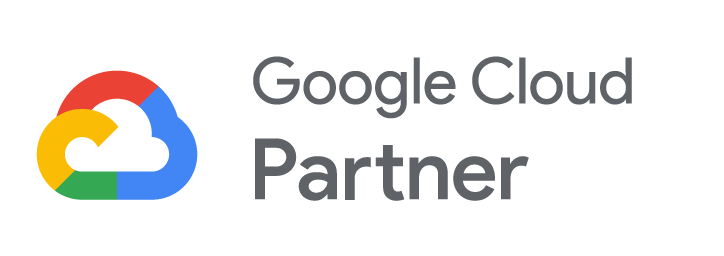Copyright 2024 - All Rights Reserved By
Next Gen Technologies

NextGen Technologies provides a comprehensive suite of cloud-based productivity tools, applications, and services designed to help individuals, teams, and organizations work efficiently and securely.

NextGen Technologies provides a comprehensive suite of cloud-based productivity tools, applications, and services designed to help individuals, teams, and organizations work efficiently and securely.
Next Gen Technologies LLC is a leading IT solutions provider in Dubai, dedicated to empowering businesses with cutting-edge technology solutions. With a focus on innovation and customer satisfaction, we offer a comprehensive range of services like cloud security , IT security assessment , Digital Marketing and marketing consultation to help you achieve your digital goals and ensure Data Protection.
Evaluate and enhance the security of your Microsoft 365 environment with Next Gen Technology’s Microsoft 365 Security Assessment, designed to identify vulnerabilities, optimize configurations, and ensure compliance with security best practices.
Next Gen Technology's Microsoft 365 Security Assessment offers a thorough evaluation of your Microsoft 365 environment to uncover security vulnerabilities, optimize settings, and ensure that your deployment adheres to industry best practices. Our team performs a detailed analysis of your configurations, policies, and security controls to provide actionable insights and recommendations, enhancing the protection of your data and users within the Microsoft 365 suite.

Microsoft Entra ID Security Assessment evaluates an organization’s identity and access management practices to identify potential security risks and vulnerabilities. It provides insights and recommendations for improving the security of user identities and access controls, helping organizations enhance their overall security posture and protect against unauthorized access and threats.
Configuration Review: Evaluate the security configurations of Microsoft 365 services such as Exchange Online, SharePoint Online, and OneDrive for Business. Identity and Access Management (IAM) Review: Assess the configuration and management of user identities, roles, permissions, and multi-factor authentication (MFA) settings.
Regulatory Compliance Review: Examine Microsoft 365 configurations against relevant regulatory requirements and industry standards (e.g., GDPR, HIPAA, and PCI-DSS). Data Protection and Privacy Review: Assess compliance with data protection regulations, including data encryption, data loss prevention (DLP) policies, and privacy settings.
Security Configuration Scanning: Use automated tools to scan Microsoft 365 configurations for security vulnerabilities and misconfigurations. Manual Review: Conduct a manual review of security settings and policies to identify potential weaknesses not detected by automated tools.
Email Security: Review email security measures, including anti-phishing, anti-malware, and safe attachment settings in Exchange Online. Threat Detection and Response: Assess threat detection and response capabilities within Microsoft 365, including Security & Compliance Center and Microsoft Sentinel integration.
Data Loss Prevention (DLP): Evaluate DLP policies and settings to ensure effective protection of sensitive data across Microsoft 365 applications. Information Governance: Review information governance practices, including data retention policies, archiving, and eDiscovery settings.
Incident Response Plan Review: Evaluate existing incident response plans for Microsoft 365 environments, including procedures for detecting, responding to, and recovering from security incidents. Gap Analysis: Identify gaps in incident response capabilities and provide recommendations for improvements.
Training Effectiveness: Assess the effectiveness of user and administrator training programs related to Microsoft 365 security best practices. Training Needs: Identify any additional training needs to improve awareness and security practices among users and administrators.
Actionable Recommendations: Provide actionable recommendations to address identified vulnerabilities, gaps, and areas for improvement. Remediation Planning: Develop a remediation plan outlining steps to implement recommended changes and enhance the security posture of Microsoft 365.
Assessment Report: Prepare a comprehensive report detailing findings, vulnerabilities, risks, and recommendations for the Microsoft 365 environment. Executive Summary: Provide an executive summary highlighting key findings and strategic recommendations for senior management.
Follow-up Reviews: Conduct follow-up reviews to evaluate the implementation of remediation measures and ongoing security improvements. Ongoing Support: Offer ongoing support and guidance to address additional security concerns and ensure continuous enhancement of Microsoft 365 security.
Initial Consultation: Engage with stakeholders to understand specific security concerns, objectives, and the scope of the Microsoft 365 environment. Scope Definition: Define the scope of the assessment, including specific Microsoft 365 services, applications, and security configurations to be evaluated.
Uncover and address security weaknesses in your Microsoft 365 environment.
Enhance your security settings to ensure maximum protection and efficiency.
Ensure that your Microsoft 365 deployment adheres to relevant regulations and security standards.
Implement best practices to safeguard sensitive information and prevent unauthorized access.
Strengthen security measures to protect users and maintain secure access to Microsoft 365 resources.
we are committed to transforming businesses through technology, enhancing productivity, and ensuring data protection.
Your trusted partner in pioneering IT solutions and service
Copyright 2024 - All Rights Reserved By